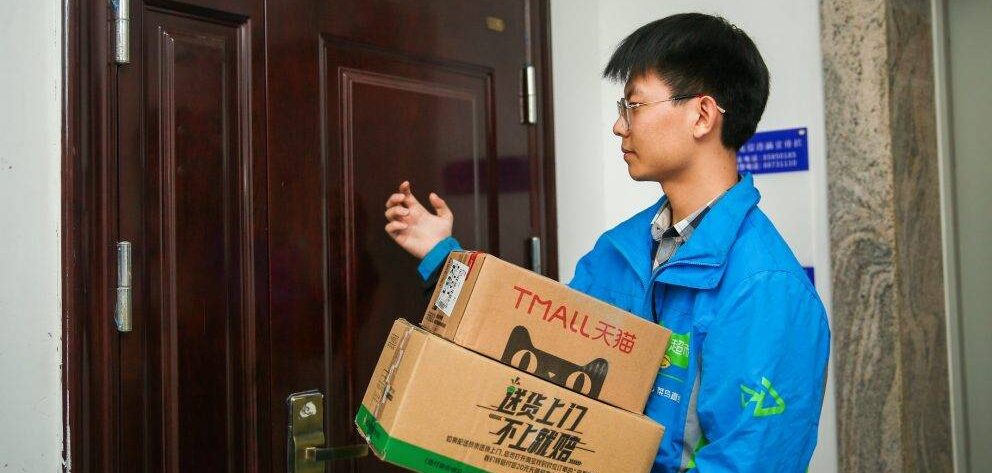Cainiao Network, the logistics arm of Alibaba Group, deployed machine learning, robots, 100,000 additional workers and 4,000,000m2 of extra warehousing space to prepare for this year’s 11.11 retail event.
The company used machine learning to analyze shopping patterns and other inputs to identify popular goods and ensure sufficient stock. Over 80% of the orders Cainiao handled this 11.11 were pre-grouped, pre-packed and pre-dispatched to local warehouses ahead of both pre-sale windows to improve delivery speed and reduce costs. Cainiao deployed robots to cover last-mile legwork on some 400 university campuses in China during 11.11. Its fleet of 700 Xiaomanlv automated guided vehicles (AGVs) was doubled in size from the 2021 festival. The company also received support from a network of pickup stations to serve customers in hard-to-reach areas.
Cainiao used over 400 cargo routes to ship goods from across the globe directly to China, from chartered flights and sea freight to railway expresses. Alongside this, the company brought on 100,000 additional workers, most posted at community-level delivery stations, to alleviate the burden and ensure parcels reached consumers promptly. Cainiao prepared 4,000,000m2 of extra warehousing space in 20 Chinese cities. Merchants could reserve a space seven days in advance if their current warehouses faced closure due to Covid-19 policies. According to the company, the improved speed and services increased merchant sales, particularly for weighing merchandise.
As a result of these preparations, Cainiao shortened the time between payment and fulfillment by three hours compared with 2021 for orders generated in the first sales window of 11.11. The period between product dispatch by sellers and delivery completion also narrowed by around five hours. However, supply chains remained under strain. In China, retailers faced complex, changeable Covid-19 pandemic restrictions that complicated final-mile logistics and dragged down daily deliveries.
Domestic logistics companies handled a daily average of 389 million parcels during the 2022 11.11 event, compared with roughly 425 million per day during 2021’s shopping festival, according to China’s Ministry of Transportation data. Overall, the platform reduced international delivery times. Its expedited delivery services fulfilled 80% of the orders customers placed with around 40,000 international brands on Alibaba’s cross-border B2C marketplace Tmall Global in 2022.
Li Wuchang, lead for 11.11 operations at Cainiao, said, “It’s all about speed and service for retailers and customers. We went to great lengths to ensure the speed and quality of our services. We expanded our investment in technology installations, and the savings from increased efficiency were used to facilitate more doorstep deliveries for consumers. The parcel pickup stations in China are often operated as mom-and-pop stores, with minimal labor resources to fulfill doorstep deliveries. Better service will help us win consumers’ loyalty when faced with the competition in today’s idle market.”


